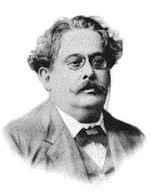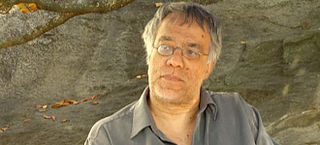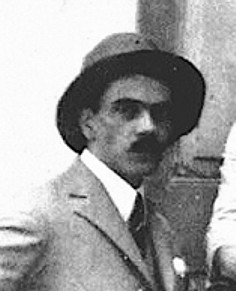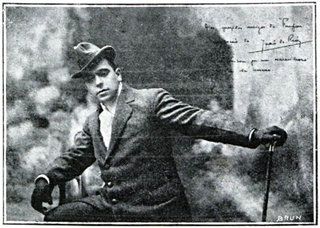 W
WCasimiro José Marques de Abreu was a Brazilian poet, novelist and playwright, adept of the "Ultra-Romanticism" movement. He is famous for the poem "Meus oito anos".
 W
WJosé Joaquim de Campos da Costa de Medeiros e Albuquerque was a Brazilian poet, politician, teacher, journalist, short story writer, civil servant, essayist, orator, novelist and dramatist. He is famous for writing the lyrics of the Brazilian Republic Anthem in 1890.
 W
WJosé Martiniano de Alencar was a Brazilian lawyer, politician, orator, novelist and dramatist. He is considered to be one of the most famous and influential Brazilian Romantic novelists of the 19th century, and a major exponent of the literary tradition known as "Indianism". Sometimes he signed his works with the pen name Erasmo.
 W
WAntônio Frederico de Castro Alves was a Brazilian poet and playwright, famous for his abolitionist and republican poems. One of the most famous poets of the "Condorism", he won the epithet of "O Poeta dos Escravos".
 W
WJorge Leal Amado de Faria was a Brazilian writer of the modernist school. He remains the best known of modern Brazilian writers, with his work having been translated into some 49 languages and popularized in film, notably Dona Flor and Her Two Husbands in 1976. His work reflects the image of a Mestiço Brazil and is marked by religious syncretism. He depicted a cheerful and optimistic country that was beset, at the same time, with deep social and economic differences.
 W
WAluísio Tancredo Gonçalves de Azevedo was a Brazilian novelist, caricaturist, diplomat, playwright and short story writer. Initially a Romantic writer, he would later adhere to the Naturalist movement. He introduced the Naturalist movement in Brazil with the novel O Mulato, in 1881.
 W
WManuel Antônio Álvares de Azevedo, affectionately called "Maneco" by his close friends, relatives and admirers, was a Brazilian Romantic poet, short story writer, playwright and essayist, considered to be one of the major exponents of Ultra-Romanticism and Gothic literature in Brazil. His works tend to play heavily with opposite notions, such as love and death, platonism and sarcasm, sentimentalism and pessimism, among others, and have a strong influence of Musset, Chateaubriand, Lamartine, Goethe and – above all – Byron.
 W
WArtur Nabantino Gonçalves de Azevedo was a Brazilian playwright, short story writer, chronicler, journalist and Parnassian poet. He is famous for consolidating in Brazil the "comedy of manners" genre, initiated by Martins Pena.
 W
WJô Bilac, is a Brazilian playwright, he debuted in 2006 as a professional playwright.
 W
WAugusto Boal was a Brazilian theatre practitioner, drama theorist, and political activist. He was the founder of Theatre of the Oppressed, a theatrical form originally used in radical left popular education movements. Boal served one term as a Vereador in Rio de Janeiro from 1993 to 1997, where he developed legislative theatre.
 W
WPedro Luziense de Bittencourt Calasans was a Brazilian poet, playwright and journalist, adept of the "Ultra-Romanticism" movement.
 W
WGero Camilo is a Brazilian actor, dramatist, singer-songwriter and poet. A descendant of Indigenous, African, Portuguese, and Dutch people, he was born in Fortaleza, Ceará from parents of Acopiara. He was a militant of Liberation theology in Ceará, where he started to act in amateur theater when he was 19 years old. In 1994, he entered the School of Dramatic Art of University of São Paulo, acting on university productions, and concluded the course four years later.
 W
WJosé Carlos de Brito e Cunha, known as J. Carlos, was a Brazilian cartoonist, illustrator and graphic designer. J. Carlos also did sculpture, wrote vaudeville plays, wrote lyrics for samba and was a major talent in Brazilian Art Deco graphic design.
 W
WJosé Celso Martinez Corrêa, known as Zé Celso, is a Brazilian stage actor, director and playwright. He was one of the founders of Teatro Oficina, an innovative and politically active theater company associated with the 1960s Tropicalismo movement.
 W
WAntônio Gonçalves Dias was a Brazilian Romantic poet, playwright, ethnographer, lawyer and linguist. A major exponent of Brazilian Romanticism and of the literary tradition known as "Indianism", he is famous for writing "Canção do exílio", the short narrative poem I-Juca-Pirama, the unfinished epic Os Timbiras, and many other nationalist and patriotic poems that would award him posthumously with the title of national poet of Brazil. He was also an avid researcher of Native Brazilian languages and folklore.
 W
WFausto Borel Cardoso, better known by his stage name Fausto Fawcett, is a Brazilian singer-songwriter, rhythm guitarist, lyricist, novelist, short story writer, playwright, journalist, actor and screenwriter, famous for his frequent collaborations with fellow musician Laufer and for being a major exponent of rap rock and cyberpunk literature in Brazil. His best known compositions are the 1987 hit "Kátia Flávia, a Godiva do Irajá" and "Rio 40°", recorded by Fernanda Abreu in 1992.
 W
WMillôr Fernandes was a Brazilian writer, journalist, cartoonist, humorist and playwright. Born Milton Viola Fernandes, his birth was registered on May 27, 1924; the handwriting on his birth certificate rendered the name "Millôr", which he adopted as his official name.
 W
WAdonias Aguiar Filho was a novelist, essayist, journalist, and literary critic from Bahia, Brazil, and a member of the Academia Brasileira de Letras.
 W
WMilton Gonçalves is a Brazilian actor. He is one of the most famous black actors in Brazil, having collaborated twice with acclaimed director Hector Babenco. One notable role with Babenco was that alongside William Hurt and Raúl Juliá as a police chief in Kiss of the Spider Woman.
 W
WGianfrancesco Sigfrido Benedetto Marinenghi de Guarnieri was an Italian–Brazilian actor, lyricist, poet and playwright.
 W
WJoaquim José da França Júnior was a Brazilian playwright, journalist and, initially, a painter. Alongside Martins Pena, he is one of the most famous adepts of the "comedy of manners" genre.
 W
WJoaquim Manuel de Macedo was a Brazilian novelist, doctor, teacher, poet, playwright and journalist, famous for the romance A Moreninha.
 W
WJoaquim Maria Machado de Assis, often known by his surnames as Machado de Assis, Machado, or Bruxo do Cosme Velho, was a pioneer Brazilian novelist, poet, playwright and short story writer, widely regarded as the greatest writer of Brazilian literature. Nevertheless, Assis did not achieve widespread popularity outside Brazil during his lifetime. In 1897 he founded and became the first President of the Brazilian Academy of Letters. He was multilingual, having taught himself French, English, German and Greek in later life.
 W
WDomingos José Gonçalves de Magalhães, Viscount of Araguaia, was a Brazilian poet, playwright, physician and diplomat. He is considered the founder of Romanticism in Brazilian literature, and was a pioneer of the Brazilian theatre.
 W
WPlínio Marcos de Barros was a Brazilian writer, actor, journalist and playwright, author of several stage plays adapted into film. Called a "Poète maudit" by some, his work features the life and struggles of underground characters, touching themes such as violence, prostitution and homosexuality, and was censored by the military government.
 W
WHenrique Maximiano Coelho Neto was a Brazilian writer and politician. He founded and occupied the second chair of the Brazilian Academy of Letters, from 1897 until his death in 1934. He was also the president of the aforementioned Academy in 1926.
 W
WJosé Rodrigues Oiticica, was a Brazilian anarchist, poet, and activist. He was founder and editor of the anarchist journal Ação direta, between 1946 until his death. He also wrote and published several books of poetry.
 W
WDomingos Olímpio Braga Cavalcanti was a Brazilian novelist, journalist and playwright, famous for his Naturalist novel Luzia-Homem.
 W
WLuís Carlos Martins Pena was a Brazilian playwright, famous for introducing to Brazil the "comedy of manners", winning the epithet of "the Brazilian Molière".
 W
WManuel José de Araújo Porto-Alegre, Baron of Santo Ângelo, was a Brazilian Romantic writer, painter, architect, diplomat and professor, considered to be one of the first Brazilian editorial cartoonists ever. He is the patron of the 32nd chair of the Brazilian Academy of Letters.
 W
WJoão do Rio was the pseudonym of the Brazilian journalist, short-story writer and playwright João Paulo Emílio Cristóvão dos Santos Coelho Barreto, a Brazilian author and journalist of African descent. He was elected on May 7, 1910 for the chair # 26 of Brazilian Academy of Letters.
 W
WNelson Falcão Rodrigues was a Brazilian playwright, journalist and novelist. In 1943, he helped usher in a new era in Brazilian theater with his play Vestido de Noiva , considered revolutionary for the complex exploration of its characters' psychology and its use of colloquial dialogue. He went on to write many other seminal plays and today is widely regarded as Brazil's greatest playwright.
 W
WAguinaldo Silva OMC is a Brazilian Emmy-winning telenovela writer born in Carpina, Brazil.
 W
WAntônio Gonçalves Teixeira e Sousa was a Brazilian poet, novelist and playwright, whose novel O Filho do Pescador is considered to be the first Romantic novel in Brazil.
 W
WAriano Vilar Suassuna was a Brazilian playwright and author. He is in the "Movimento Armorial". He founded the Student Theater at Federal University of Pernambuco. Four of his plays have been filmed, and he was considered one of Brazil's greatest living playwrights of his time. He was also an important regional writer, doing various novels set in the Northeast of Brazil. He received an honorary doctorate at a ceremony performed at a circus. He was the author of, among other works, the "Auto da Compadecida" and "A Pedra do Reino". He was a staunch defender of the culture of the Northeast, and his works dealt with the popular culture of the Northeast.
 W
WAlfredo Maria Adriano d'Escragnolle Taunay, Viscount of Taunay, was a French Brazilian writer, musician, professor, military engineer, historian, politician, sociologist and nobleman. He is famous for the Regionalist novel Inocência, considered a major forerunner of Naturalism in Brazil, and for A Retirada da Laguna, an account of an episode in the war against Paraguay. The Brazilianist Leslie Bethell has described it as "the one undoubted literary masterpiece produced by the Paraguayan War".
 W
WJoão Carlos Reiners Terron, writing as Joca Reiners Terron, is a Brazilian poet, novelist, designer and editor.
 W
WJoão Silvério Trevisan is Brazilian author, playwright, journalist, screenwriter and film director. In his much-diversified oeuvres, he has published eleven books, among them great works of fiction, essays, short stories, and screenplays. Trevisan has been influential as a literary and cultural critic, particularly on gay and lesbian issues and his works have been translated into English, Spanish, and German.